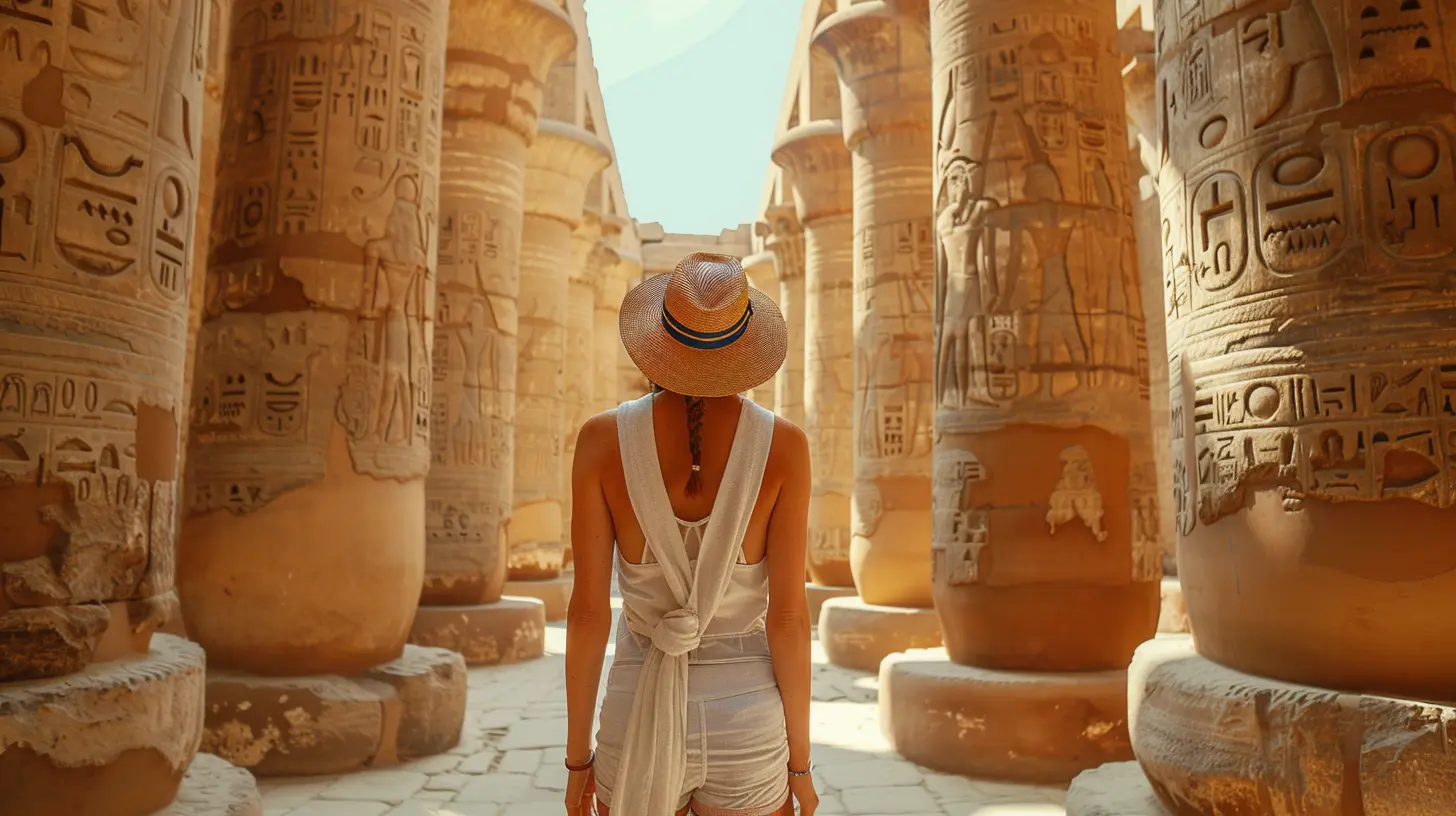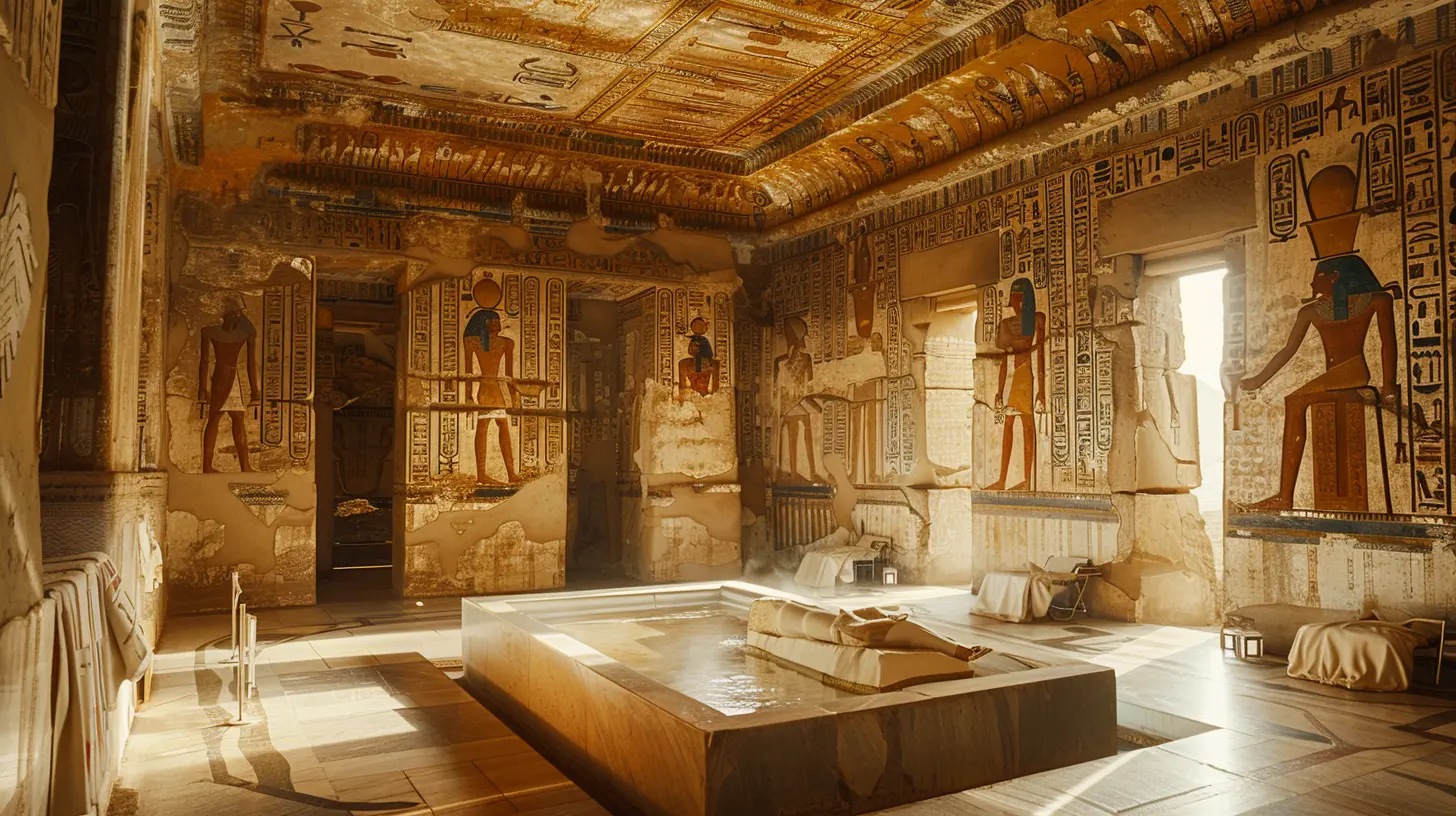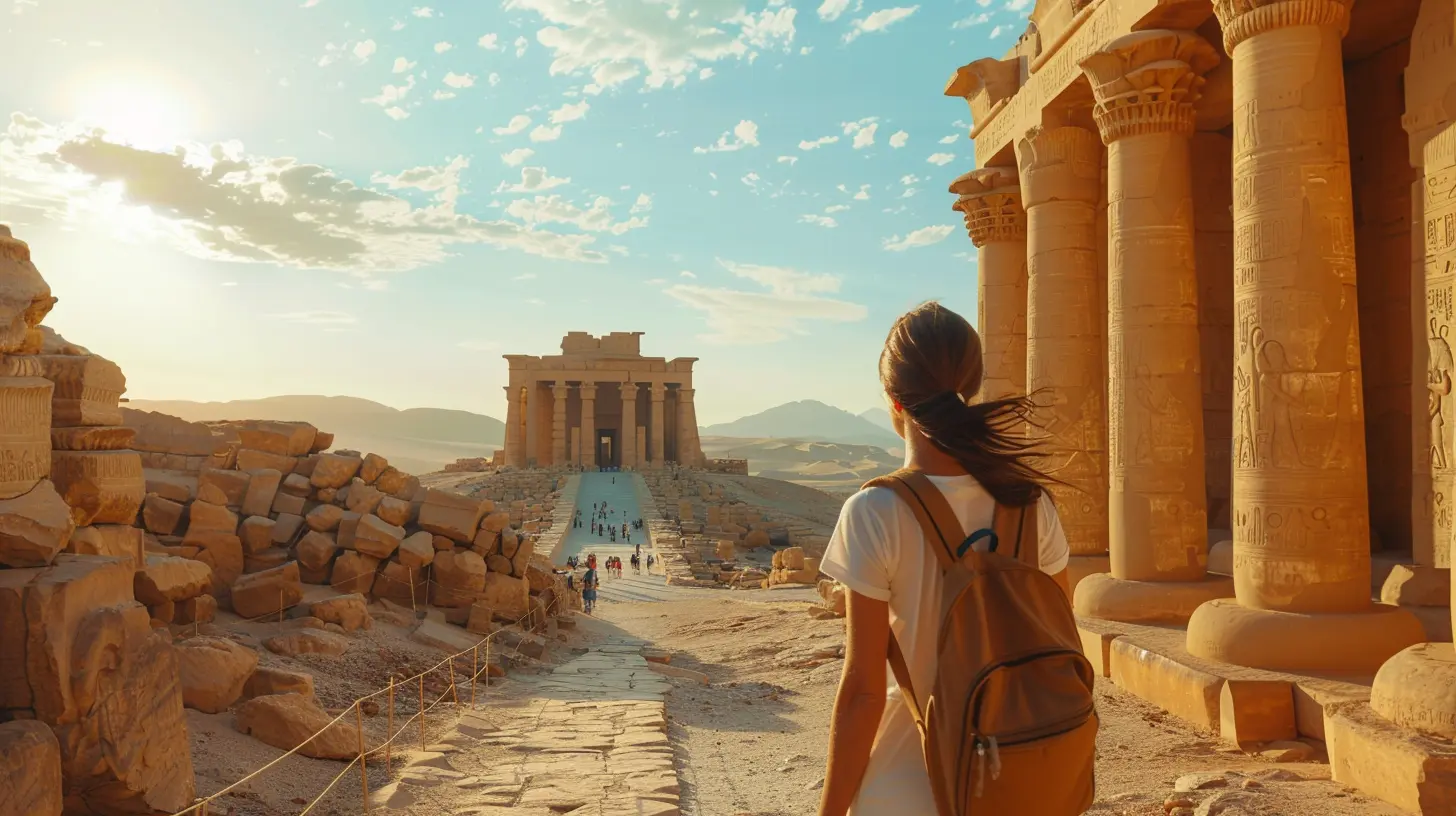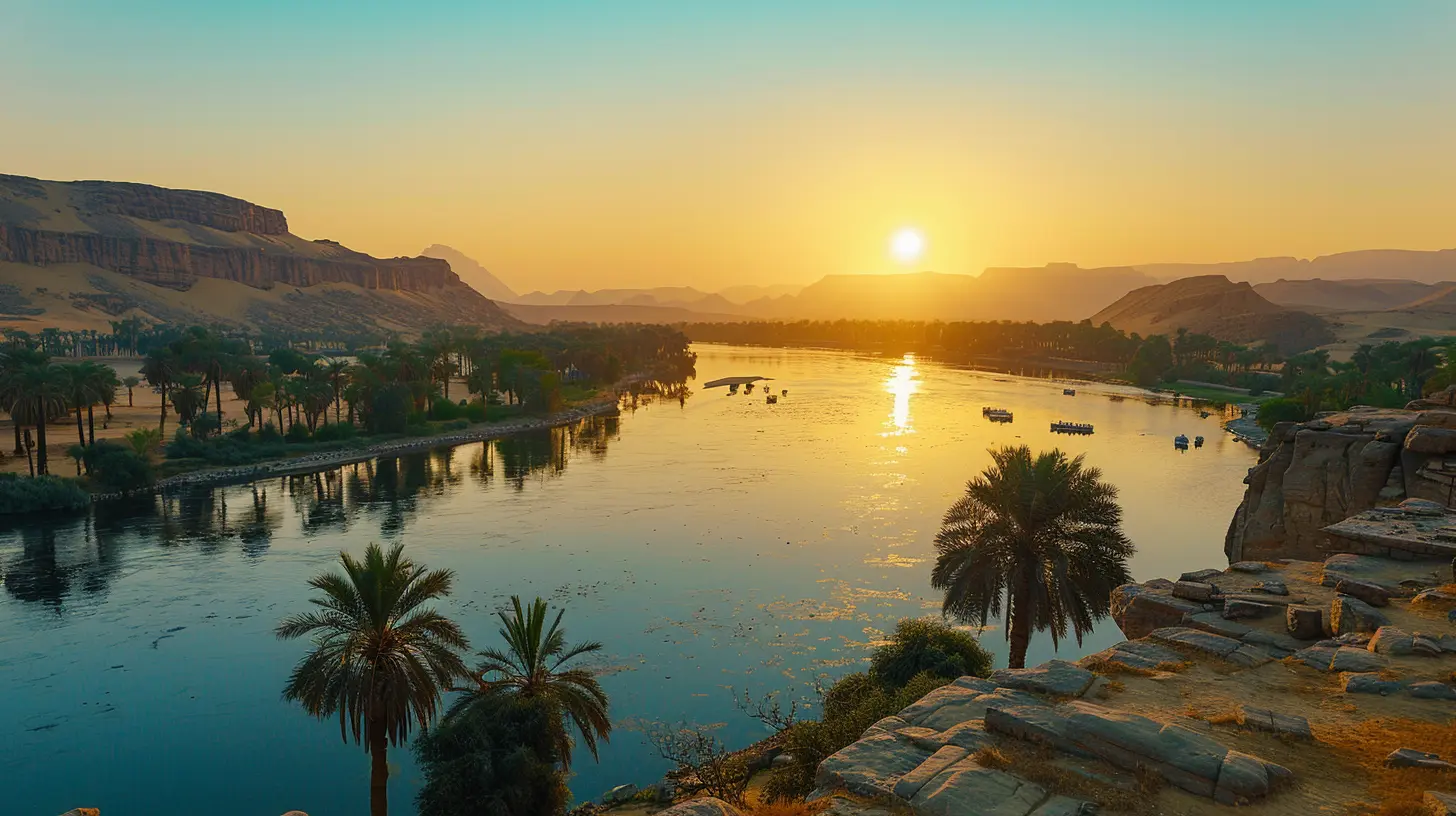When to Explore Egypt's Ancient Wonders in Comfort
7 December 2024
Egypt, the land of pharaohs, pyramids, and mysteries, has captured the imaginations of travelers for centuries. From the towering Great Pyramids of Giza to the enigmatic temples of Luxor, this country boasts some of the most iconic ancient wonders in the world. But here's the big question: when is the best time to explore Egypt’s ancient treasures without feeling like you're being roasted alive by the desert sun or caught in a whirlwind of tourist crowds?
The truth is, timing is everything. Visiting Egypt at the right moment could mean the difference between a magical adventure and a sweaty, hurried dash between sites. So, let’s dive into the specifics and help you figure out the most comfortable time to experience Egypt’s awe-inspiring history and culture. 
Why Timing Matters When Visiting Egypt
First off, let’s talk about why timing is such a big deal here. Egypt mainly has two seasons: a scorching-hot summer and a cooler winter. Unlike destinations where a quick packing adjustment suffices, Egypt is a different beast. Try trekking through the Valley of the Kings in July, and—trust me—you’ll feel like you’re in an oven. On the flip side, visiting during the wrong time may leave you shoulder-to-shoulder with throngs of tourists, snapping selfies.If you want to marvel at Egypt's historical wonders in comfort, a little planning goes a long way. Whether it's escaping the heat or avoiding the crowds, picking the right season can transform your trip into a dream vacation. Let’s break it down. 
Best Time of Year to Visit Egypt
1. Winter (November to February): The Sweet Spot
Winter is hands-down the best time to visit Egypt. Why, you ask? For starters, the temperatures are far more forgiving, hovering between 20°C to 25°C (68°F to 77°F) during the day. This makes wandering through archaeological sites like Karnak Temple or climbing up Mount Sinai much more enjoyable. At night, especially in desert areas, it can get a bit chilly, so pack a light jacket.But here's the catch: winter is Egypt's peak tourist season. While the weather is perfect, the downside is you won’t be the only one who had this bright idea. Places like the Pyramids of Giza, Abu Simbel, and Cairo’s Egyptian Museum can get pretty crowded.
If you’re okay with a little extra company, winter is your golden ticket to exploring Egypt’s treasures without breaking a sweat. Pro tip? Book accommodations and guided tours well in advance to avoid last-minute surprises.
2. Spring (March to April): A Balancing Act
Spring in Egypt is another fantastic time to visit. The weather is still pleasant, with temperatures ranging from 25°C to 30°C (77°F to 86°F), though it’s warmer than in winter. Flowers bloom, the sun shines brightly, but it doesn’t feel like you’re walking under a magnifying glass.However, Egypt occasionally experiences "khamsin" winds during spring—hot, dry, and dusty winds that sweep across the Sahara. While these winds are rare and short-lived, they could temporarily affect your travel plans. Carry a scarf or bandana to cover your face if you're caught in one.
That said, spring offers a nice balance: fewer tourists compared to winter, beautiful weather, and less pressure on your travel budget. If you’re debating when to visit, spring is an excellent runner-up to winter.
3. Autumn (September to October): The Shoulder Season
Autumn in Egypt is like stealing a bite of dessert before dinner—it’s daring, rewarding, but comes with a little risk. September can still be pretty hot, especially in southern Egypt near Luxor and Aswan, where temperatures can climb up to 35°C (95°F). By October, the weather starts to cool off, averaging around 27°C (81°F).The good news? Autumn is a shoulder season, meaning fewer tourists and cheaper prices on flights and hotels. If you’re looking for a quieter, more budget-friendly trip, October is a great time to visit. Just avoid midday excursions in September unless you're okay with feeling like you're on the surface of the sun!
4. Summer (May to August): For the Brave-Hearted
Let’s not sugarcoat it—summer in Egypt is blisteringly hot. Temperatures can soar up to 40°C (104°F) and beyond, especially in cities like Luxor and Aswan. Unless you’re a heatwave enthusiast, this isn’t the ideal time to explore ancient temples or pyramids.However, there's a silver lining for those willing to brave the heat: fewer tourists and budget-friendly deals. Hotels and tour operators slash their prices during the off-season, so if you’re okay with early morning or evening sightseeing to dodge the heat, you might score some incredible bargains.
Plus, certain places like Alexandria and the Mediterranean Coast experience milder summers compared to inland destinations. If you’re near the coast, it’s not entirely unbearable. 
What Are the Major Events and Festivals to Consider?
Timing your trip around local festivals can add a whole new dimension to your adventure. Egypt has some fascinating events that can enrich your cultural experience.- Abu Simbel Sun Festival (February 22 & October 22): This biannual event celebrates the alignment of the sun with the inner sanctum of the Abu Simbel Temple. Imagine crowds gathering to witness ancient Egyptian engineering in action!
- Ramadan (Dates Vary Each Year): While Ramadan is a holy month and primarily observed by locals, it’s a unique time to visit if you’re interested in cultural traditions. After sunset, streets come alive with festivities and delicious feasts. Just remember that some businesses may operate on reduced hours during the day.
- Coptic Christmas (January 7): Egypt’s Christian community celebrates Christmas later than Western countries, and the festivities include beautiful church services and vibrant markets. 
Tips for Exploring Egypt in Comfort
Now that we’ve nailed down the best times to visit, let’s talk about how to make your trip as comfortable as possible. Whether you're dodging the heat or navigating crowded streets, these tips will have you exploring like a pro.1. Start Early or Go Late
The best way to beat the heat and the crowds is to visit ancient sites early in the morning or late in the afternoon. Plus, the lighting during these times makes for stunning photographs.2. Hydration is Key
Egypt is dry—like, "my skin feels like parchment" dry. Carry a reusable water bottle everywhere you go, and don't skimp on drinking water.3. Dress Smart
Think lightweight, breathable fabrics (hello, cotton and linen), a wide-brimmed hat, and sunglasses. Comfortable shoes are a must, especially if you plan on climbing pyramids or walking long distances through ancient ruins.4. Book Guided Tours
Exploring Egypt’s history with a knowledgeable guide can make a world of difference. They’ll help you dodge tourist traps, provide fascinating insights, and ensure you don’t miss the best parts of each site.5. Be Prepared for Security Checks
Major tourist sites often have tight security, which means bag checks and metal detectors. It's all for your safety, but it’s good to plan for a little extra time at entrances.Egypt Awaits You
Egypt isn't just a destination; it's a journey back in time. Whether you're marveling at the Great Pyramid, cruising the Nile, or wandering through markets filled with spices and crafts, every corner of Egypt whispers tales of its ancient past. By choosing the right time to visit, you can soak in all its magic without breaking a sweat—or your budget.So, are you ready to explore Egypt’s ancient wonders in comfort? Trust me, the memories you'll create here will last a lifetime.
all images in this post were generated using AI tools
Category:
Best Time To VisitAuthor:

Shane Monroe
Discussion
rate this article
13 comments
Franklin O'Neal
Unravel the secrets of Egypt's ancient wonders when the sun dips low and shadows dance upon the sands. Discover a world where time stands still, beckoning the curious traveler.
February 14, 2025 at 5:16 AM

Shane Monroe
Absolutely! Exploring Egypt's ancient wonders at dusk enhances the experience, allowing you to feel the mystical allure of its history while avoiding the heat of the day.
Zeno West
What a wonderful guide! Exploring Egypt's ancient wonders is a dream for many. Your insights on when to visit help ensure a comfortable and memorable experience. Thank you for sharing!
January 31, 2025 at 3:42 AM

Shane Monroe
Thank you for your kind words! I'm glad you found the guide helpful in planning your dream trip to Egypt's ancient wonders!
Iris Johnson
This article effectively highlights the importance of timing in experiencing Egypt's ancient wonders. By emphasizing optimal seasons for both comfort and exploration, it guides travelers in making informed decisions that enhance their journey through history.
January 29, 2025 at 4:38 AM

Shane Monroe
Thank you for your feedback! I’m glad you found the article helpful in planning an enjoyable exploration of Egypt's ancient wonders.
Judith Banks
What a fantastic guide! Exploring Egypt's ancient wonders is an incredible experience, and your tips will surely help travelers enjoy it comfortably.
January 24, 2025 at 5:56 AM

Shane Monroe
Thank you for your kind words! I'm thrilled you found the guide helpful for exploring Egypt's amazing sites comfortably. Happy travels!
Tiffany Collins
What a delightful read! Exploring Egypt's ancient wonders is a dream come true, and your tips on the best times to visit are incredibly helpful! Imagine wandering through the pyramids and savoring the rich history in comfort—pure bliss! Can't wait to plan my adventure! 🌍✨
January 18, 2025 at 5:12 AM

Shane Monroe
Thank you! I'm thrilled you found the tips helpful. Enjoy planning your adventure through Egypt's magnificent history! 🌟
Yasmine McQuiston
Unlock the magic of Egypt's ancient wonders—plan your journey during the cooler months for the ultimate comfortable exploration experience!
January 10, 2025 at 4:36 AM

Shane Monroe
Thank you! Exploring Egypt's wonders in the cooler months truly enhances the experience—comfort and magic await!
Heidi McKee
Great tips! Visiting during the cooler months really enhances the experience of exploring Egypt’s treasures.
January 5, 2025 at 5:28 AM

Shane Monroe
Thank you! I completely agree—cooler months truly make exploring Egypt's wonders even more enjoyable.
Ryder McIntyre
This article brilliantly highlights the ideal times for exploring Egypt's ancient wonders while ensuring comfort. The insights on weather, crowds, and travel tips are invaluable for planning an unforgettable trip to this historic destination.
December 28, 2024 at 3:42 PM

Shane Monroe
Thank you for your kind words! I'm glad you found the insights helpful for planning a memorable trip to Egypt's ancient wonders.
Xavier Acevedo
Explore Egypt's ancient wonders in comfort like a Pharaoh—avoid the summer heat, embrace the shoulder seasons, and let history unveil itself without the sweltering crowds. Happy travels!
December 24, 2024 at 3:27 AM

Shane Monroe
Thank you for the great advice! Exploring Egypt during the shoulder seasons truly enhances the experience while avoiding the heat and crowds. Happy travels to you too!
Stella Peterson
What a fascinating read! Exploring Egypt’s ancient wonders sounds like an incredible adventure. I’m curious about the best times to visit and how to balance comfort with experiencing the rich history. Looking forward to learning more tips for an unforgettable journey!
December 18, 2024 at 4:02 AM

Shane Monroe
Thank you for your interest! The best times to visit are spring (March-May) and fall (September-November) for pleasant weather. To balance comfort and history, consider guided tours that offer both insights and convenience. Happy exploring!
Lily Bass
This article beautifully captures the allure of Egypt's timeless treasures. Exploring its ancient wonders in comfort truly enhances the experience, allowing travelers to connect more deeply with history. Your insights inspire wanderlust and respect for this magnificent culture. Thank you for sharing!
December 14, 2024 at 4:55 PM

Shane Monroe
Thank you so much for your kind words! I'm glad to hear the article inspired your wanderlust for Egypt's incredible history. Happy travels!
Rina Marks
Experience Egypt's ancient wonders at their best by timing your visit in the cooler months. Comfort and exploration await—plan wisely for an unforgettable adventure!
December 9, 2024 at 5:40 AM

Shane Monroe
Thank you for the great advice! Visiting during the cooler months truly enhances the experience of Egypt's incredible ancient sites. Happy exploring!
Tracie McInnes
This article provides valuable insights for travelers looking to experience Egypt's ancient wonders comfortably. It highlights the best times to visit, considering weather and crowd factors. A must-read for anyone planning a memorable journey through Egypt's rich history while avoiding the extremes of heat and tourism peaks.
December 7, 2024 at 4:31 AM

Shane Monroe
Thank you for your feedback! I'm glad you found the insights helpful for planning a comfortable trip to Egypt's ancient wonders.
MORE POSTS

Discovering the Most Luxurious Cruise Destinations on Earth

How to Handle Seasickness on Your Cruise: Tips and Tricks

The Vibrant Street Art Scene of Buenos Aires

Gourmet Dining at Sea: The World’s Most Delicious Cruise Menus

How to Photograph Wildlife Without Disturbing Their Natural Habitat

Culinary Weekend Escapes for Foodies and Travelers

Rainforest Retreats: Explore the Beauty of Tropical Wilderness

Walk the Coastline: Best Beach Hiking Trails

Best Beach Towns for a Laid-Back Vacation Vibe